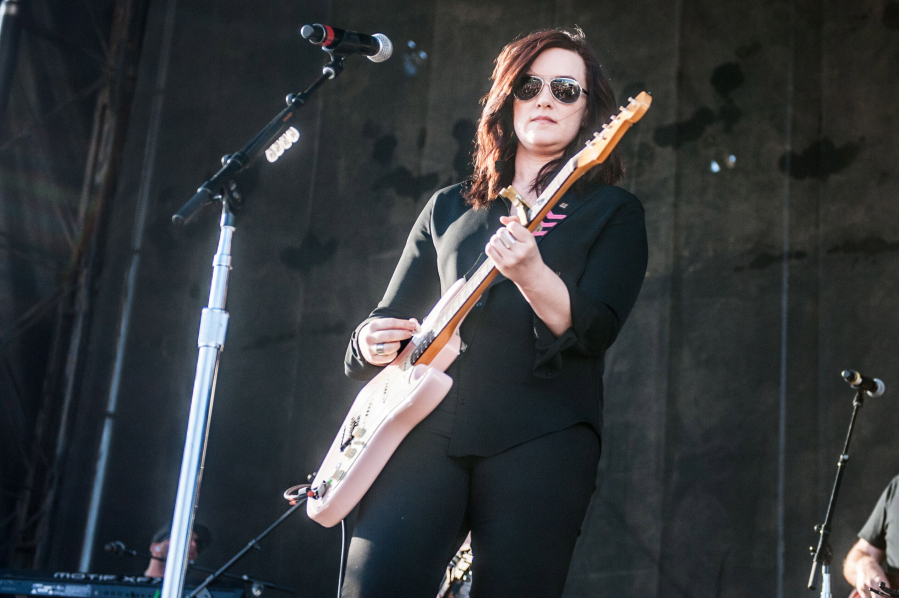As fate would have it, three decades later Carlile would help rejuvenate the country great’s career, co-producing and co-writing Tucker’s 2019 “While I’m Livin’,” which roped two Grammys last year. On Sunday, Carlile’s country supergroup The Highwomen could take home the best country song trophy with familial inclusivity anthem “Crowded Table.” Elsewhere, Carlile’s “Carried Me With You” from the “Onward” soundtrack is nominated for best song written for visual media and The Secret Sisters album she produced is up for best folk album.
Both Carlile, who lives in rural Maple Valley, and Clark have made runs at country radio at various times. Carlile’s Highwomen project was the most countrified project of her career, a double-dog dare you to male-dominated country radio to add more women to their rotations. In an interview before the album’s release, Carlile discussed listening to country radio while driving the diesel Ford F-350 she uses for “farm stuff” — picking up hay, hauling her boat or taking garbage to the dump — and never hearing women. Despite garnering critical acclaim, the group consisting of Carlile, fellow Americana vets Amanda Shires and Natalie Hemby, and country star Maren Morris made little inroads at country radio. Still, their message rang loud and clear. This year’s country categories are loaded with women, and members of The Highwomen account for three of the five nominations for best country song.
WELCOME TO WASHINGTON
With every West Coast tour, Andrews stayed a little longer. Washington had been good to the Phoenix-reared singer-songwriter, who was lured to the Evergreen State by the “mystique” of large water bodies and bevy of “cool indie music” coming out of the region. It didn’t hurt that her then-boyfriend and future bandmates were here, too. While Andrews was very much a part of the Seattle music community during her Washington tenure — her early work in step with the indie-folk and singer-songwriter scene that peaked around her 2011 arrival — she made her off-tour home primarily in Duvall, tending bar for a spell at the Duvall Tavern.
“I’d always been on the road, so it was the first time in my life I had a job for longer than three months,” says Andrews, whose arrestingly austere “Old Flowers” is up for best Americana album. “When you tour so much, I feel like you live in an alternate reality — a bubble of people who are in the music business and people who love music. And when you work at a bar, you meet the plumber and the farmer and the goat man, and the weird guy who dresses up like a pirate. … When you tell them you’re a singer they can only be like ‘Oh, well that’s cool,’ but they don’t fully understand. It’s kind of beautiful, the anonymity of it.”



